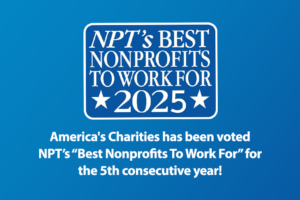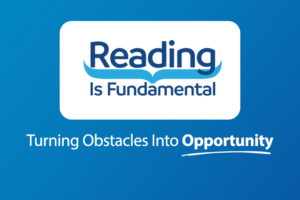Lustgarten Foundation | November 2, 2017
Immunotherapy: A Promising New Approach to Pancreatic Cancer Treatment
Immunotherapy, which involves using a person’s own immune system to fight and destroy cancer cells, is considered by many leading researchers to represent the future of cancer treatment. While immunotherapy has been successful in treating other diseases, only recently have we made breakthroughs in applying immunotherapy to pancreatic cancer treatment.
Last spring, in an unprecedented, fast-tracked review, the Food and Drug Administration (FDA) approved pembrolizumab (anti-PD-1 monoclonal antibody) as the first immunotherapy treatment for advanced pancreatic cancer patients whose tumors have a unique mutation called mismatch repair deficiency (MMR) that alters their capacity to repair DNA. The Lustgarten Foundation played a critical role in bringing this new treatment to patients by funding the research and encouraging patients to get tested to determine if their tumor has MMR.
Bert Vogelstein, M.D., co-director of the Ludwig Center at the Johns Hopkins Kimmel Cancer Center and a Lustgarten Foundation Distinguished Scholar who helped direct this study, said, “It is the first example of ‘personalized immunotherapy.’ A specific immune treatment can now be recommended for patients based exclusively on the genetic characteristics of the tumor. If the tumor shows a repair defect, then it is very likely that it will respond to this drug, regardless of how advanced the cancer is at the time of treatment.”
It is estimated that approximately 1 in 50 advanced pancreatic cancer patients have mismatch repair deficiency in their tumors that makes them candidates for this type of therapy. Pembrolizumab is the first cancer drug based on a predictive cancer marker, rather than tumor type, to be approved by the FDA.
John Shinnick was diagnosed with pancreatic cancer at age 72 and didn’t think he would survive the three months of chemotherapy originally recommended to him. After receiving a second opinion and undergoing a Whipple procedure to remove a portion of his pancreas, John sought treatment at the Johns Hopkins Bloomberg Kimmel Institute where he tested positive for the MMR mutation and was enrolled in the clinical trial for pembrolizumab in June 2016. John is still in the trial and continues to do well. “Being diagnosed with pancreatic cancer was terrifying,” John said. “I am grateful to be receiving the best possible treatment, and I have a very high quality of life.”
We encourage all patients to get their tumors tested for MMR. If the test is positive, patients should speak with their doctors to determine if treatment with pembrolizumab is right for them.
In addition to the pembrolizumab approval, we are working with Stand Up To Cancer (SU2C) on several immunology projects and on a new translational research team to explore how a type of immunotherapy called Chimeric Antigen Receptor (CAR) T-cell therapy, which has been successful in treating blood cancers, can be applied to solid pancreatic tumors. CAR T-cell therapy uses specially modified immune cells to find and destroy cancer cells. This research is being led by Drs. Carl June, Shelley L. Berger, and E. John Wherry from the University of Pennsylvania’s Perelman School of Medicine. We are providing $1 million in funding for this research, and SU2C is providing an additional $1 million. We look forward to updating you on this exciting new research that will have a significant impact for patients.
Support Pancreatic Cancer Research Through Your Employee Giving Program:
As a donor, you can support pancreatic cancer research by donating to Lustgarten Foundation through your employer’s workplace giving program. Payroll pledges made through employer-sponsored charitable giving programs represent a cost effective and near effortless way to support your favorite charities.
As Lustgarten Foundation’s workplace giving partner, America’s Charities can help your company design and implement a program centered on supporting their work – through workplace giving campaigns, employee fundraising, cause-focused signature programs, volunteerism, donation drives, matching gifts, Dollars-for-Doers, In-Kind Giving and other employee engagement and philanthropic initiatives. Click here to request a demo and learn how we can help you do this.

Get Resources and Insights Straight To Your Inbox
Explore More Articles
For Fifth Consecutive Year America’s Charities Named ‘Best Nonprofit To Work For’
Washington, D.C. – April 1, 2025 – America’s Charities, the nonprofit that mobilizes the power of giving as a leading provider of volunteering, workplace giving,…
Read ArticleWorkplace Fundraising + Volunteering Summit (April 2nd and 3rd, 2025)
Join us in attending this virtual summit! The America’s Charities team is joining up with other leading voices in the workplace giving space for a…
Read ArticleThe Time to Act is Now
The results of the 2024 National Assessment of Educational Progress (NAEP) are in, and the findings are, in a word, heartbreaking. This assessment serves as…
Read ArticleGet Resources and Insights Straight To Your Inbox
Receive our monthly/bi-monthly newsletter filled with information about causes, nonprofit impact, and topics important for corporate social responsibility and employee engagement professionals, including disaster response, workplace giving, matching gifts, employee assistance funds, volunteering, scholarship award program management, grantmaking, and other philanthropic initiatives.




